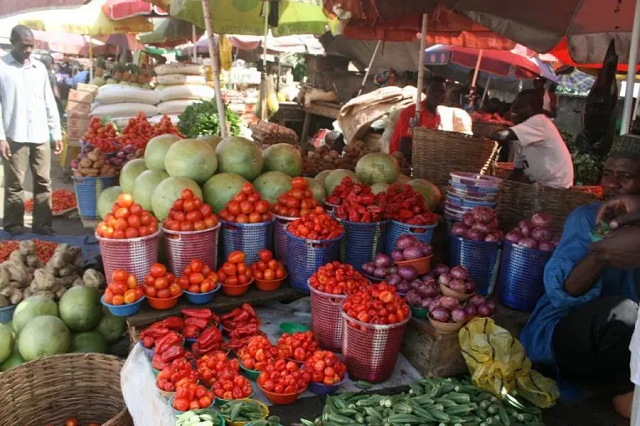The Minister of Finance, Budget and National Planning, Zainab Ahmed has said that food inflation contributed a large chunk to the country’s inflation crisis.
She disclosed this to reporters at the State House, Abuja after the Federal Executive Council meeting headed by President Muhammadu Buhari.
Zainab explained that once broken down, it will be found that the reason for food inflation is the high cost of transportation.
In a bid to resolve the matter, she said that the federal government increased the acquisition of mass transit vehicles to reduce the cost of transportation that would, in extension, impact food inflation, thereby causing it to decline.
She said, “Inflation is high at 16.7% and we’ve seen inflation inching up gradually over the last couple of months.
READ ALSO: Norway Urges Nigeria To Withdraw Stock Fish From Forex Ban List
“When you look at the components that constitute inflation in our country, the largest contributor is food inflation and food inflation also, if you decouple it, the largest contributor to food inflation is the cost of transport.
“We now look at how do we reduce the cost of transport because we can’t give every Nigerian money to pay for their transportation fares.
READ ALSO: Togo, Niger, Benin Owe Nigeria N6.18 Billion For Electricity
“We figured that one of the good ways to do it is to increase the acquisition of mass transit vehicles and to reduce the acquisition cost of vehicles and tractors that are used for productive purposes like agriculture.
“So the reason why we reduce those duties is to reduce the cost of transportation.
“So, once this implementation takes full effect, we are hoping that we’ll be able to see more tractors coming into the country, more mass transit buses coming to the country, reducing the cost of transportation as a result, and also having an impact on food prices.”
Inflation in Nigeria
The Nigeria Bureau of Statistics (NBS) pegged the country’s inflation at 16.47 percent as of January 2021.
It noted that the recent figure is the country’s highest inflation rate in 33 months.
The bureau stated in its report that food prices soared to 20.57 percent from 19.56 percent recorded in December 2020.
According to the NBS, food inflation could be traced to the rise in prices of food items such as bread and cereals, potatoes, yam and other tubers, fruits, meat, vegetable, fish and oils and fats.













